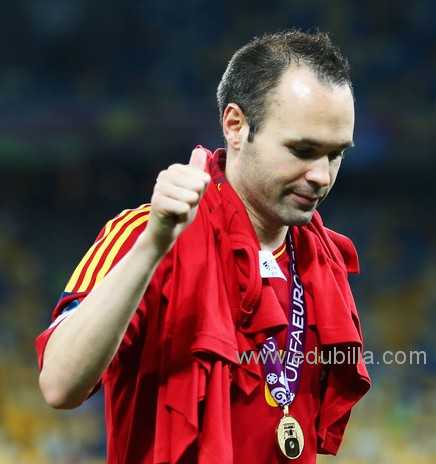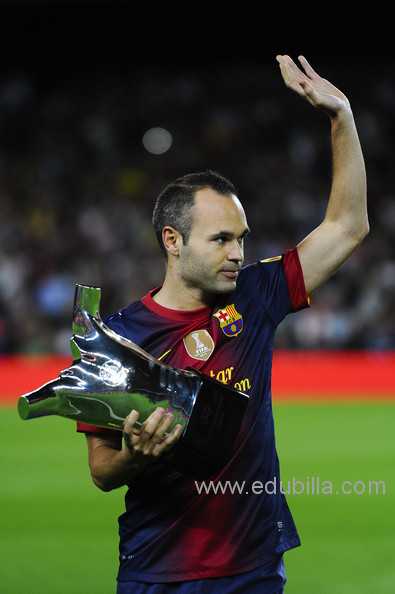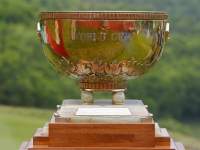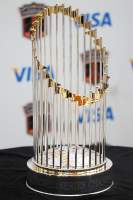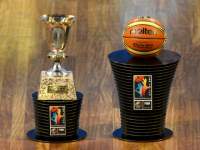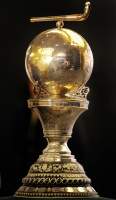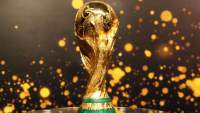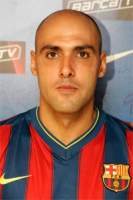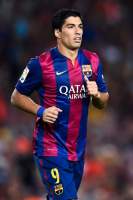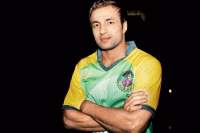
Andrés Iniesta
Nick Name
: N/A
Born
:11 May,1984
Age
:35 years, 3 months
Location
:Fuentealbilla, Castille-La Mancha, Spain
Education
:
Debut On
:1996
About Andrés Iniesta
- Andrés
Iniesta joined Barca as a twelve-year-old in 1996 after scouts had spotted him
at the Brunette Tournament playing for Albacete..
- From the start he progressed rapidly through
the club's various youth teams and was promoted to the Barça B team for the
2000-01 season, where he almost immediately became the team's main playmaker
under coach Josep Maria Gonzalvo.
- Andrés' dream of making the first team
finally came true in October 2002 when he was picked to play in the Champions
League game against Bruges in Belgium. Van Gaal's Barça won that evening and
Andrés made an excellent impression.
- Now a recognised squad member, Iniesta had
established a place for himself through hard work allied to his undoubted
natural skills. In the shadow of some of the team's bigger names, Andres became
a key piece of the League winning team in 2004-05, winding up as Rijkaard's
most used player, figuring in 35 of the 38 league games. Iniesta also played 8
Champions League matches, scoring twice.
- But he really established himself as a first
team player in the 2005-06 season. Playing in central midfield in place of
Xavi, who was sidelined for a long time with injury, Iniesta became one of the
key players in the Barça side that won the League and the Champions League. He
played in 33 League fixtures and 11 in the Champions League.
- Iniesta continued to develop in the 2006-07
season and was one of the players most used by Frank Rijkaard in that campaign.
He played in 37 out of 38 League games, scoring 6 goals, his best return to
date. In the 2007-08 season, and by now wearing the number 8 shirt, the
midfielder continued to be an ever present in the side until a knee injury
sidelined him for the last few games of the campaign.
- In the 2008/09 season, Iniesta was even
better than ever. Playing in a central or wide role he delighted the whole
world with his amazing dribbling skills. He grew into one of the essential
components of the Barça engine, and took the team to the Champions League final
in Rome thanks to his famous goal in the final seconds of the semi final at
Stamford Bridge.
- Injuries affected his contribution in the
2009-10 season when he was already one of the leading players in the team. He
played 29 matches in the league, 9 in the Champions League and 3 in the Cup,
and coupled to his performances for Spain, was named the second best player in
the world. In the 2010/11 season, Iniesta was back to his best and in an injury
free campaign he helped the team to another Liga and another Champions League.
He played 50 matches, his second highest tally as an FCB player.
- On April 14, 2012, when he came on as sub
against Levante, Iniesta made his 400th appearance for Barcelona, only the
tenth player to make that milestone. A week later, on April 21, 2012, Iniesta’s
record run of 55 league games without defeat came to an end against Real
Madrid. He hadn’t experienced a loss in a Barça shirt since September 2010, the
day Barça lost to Hercules on the second day of the league season.
- He played 46 games in the 2011/12 season,
contributing eight goals, and also collecting yet more winner medals, this time
for the Spanish Supercup, the European Supercup, the Clubs World Cup and the
Copa del Rey. It was also his finest goalscoring season in Europe, with three
goals.
- Andrés Iniesta has also been a regular
feature of the Spanish national side since the 2006 World Cup, and at Euro 2012
was named player of the tournament in Poland in Ukraine, where he also
collected his second winners medal.
- But Iniesta’s finest hour in the national
jersey was July 11, 2010, when the midfielder’s goal just four minutes from the
end of extra time against Holland won Spain the World Cup for the first time
ever. He has won everything there is to win in world football, and both club
and international level, and still has many more years of top level football
ahead of him.
Andrés Iniesta Achievements
- World Cup
- European Championship
- Champions League
- Spanish Cup
- UEFA Super Cup
- Spanish Supercup
- FIFA Club World Cup
